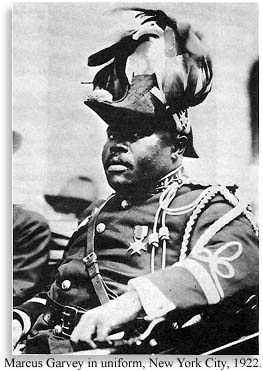Cel 510 kid ados forever
Veteran
Garvey recognized the influence of the Ku Klux Klan and, after the Black Star Line was closed, sought to engage the South in his activism, since the UNIA now lacked a specific program. In early 1922, he went to Atlanta for a conference with KKK imperial giant Edward Young Clarke, seeking to advance his organization in the South. Garvey made a number of incendiary speeches in the months leading up to that meeting; in some, he thanked the whites for Jim Crow.[46] Garvey once stated:
I regard the Klan, the Anglo-Saxon clubs and White American societies, as far as the Negro is concerned, as better friends of the race than all other groups of hypocritical whites put together. I like honesty and fair play. You may call me a Klansman if you will, but, potentially, every white man is a Klansman as far as the Negro in competition with whites socially, economically and politically is concerned, and there is no use lying.[36]
After Garvey's entente with the Klan, a number of African-American leaders appealed to U.S. Attorney General Harry M. Daugherty to have Garvey incarcerated.[47]
There are some allegations that the KKK helped fund his "Back to Africa" movement. Marcus Garvey willingly met with the KKK and told them that he was in agreement with many of their strategies. Garvey felt that black people being intimidated by the KKK would force black people to unite and form our own country.
The issue was most Black Americans did/would not support that -- and Mr. Garvey had never visited Africa -- and was trying to encourage AA's to leave and go there. They also felt like he was out of place to be speaking for and about AA's.
Many Black Americans were upset that he met with the KKK - because it was at the height of lynchings -- and Mr. Garvey was not from the U.S. -- nor did he live in the Jim Crow South -- ground zero for extreme white terrorism.
Also, it's a misconception that most AA's during that time knew about Mr. Garvey and his movement -- most Black americans lived in the South -- outside of NYC or DC --- they didn't know who he was if large numbers. You can verify this by looking at Black Newspapers during that time via Newspapers.com -- and the Archives.
Dam garvey was like the goat black leader to me.
U saying he wasnt as big with ados as it seem.
Dam

